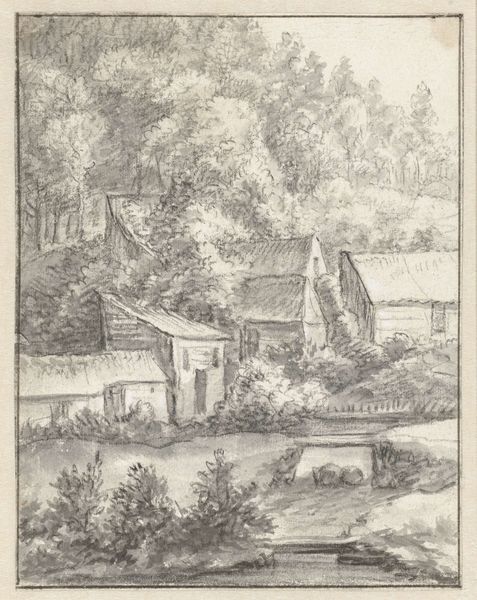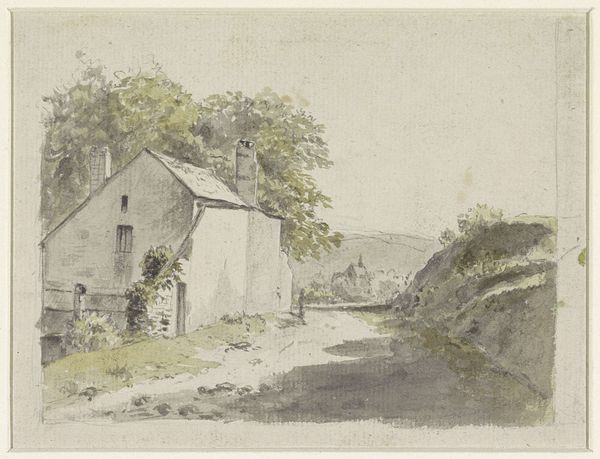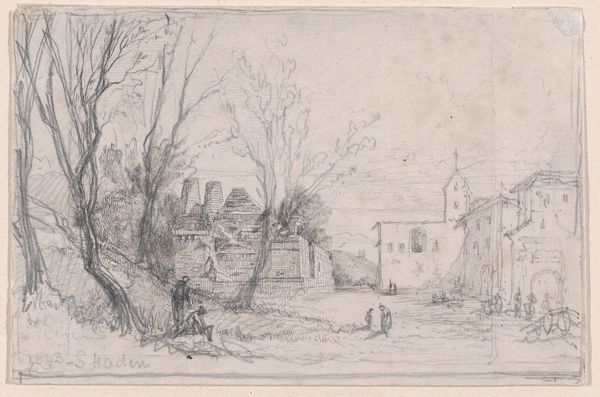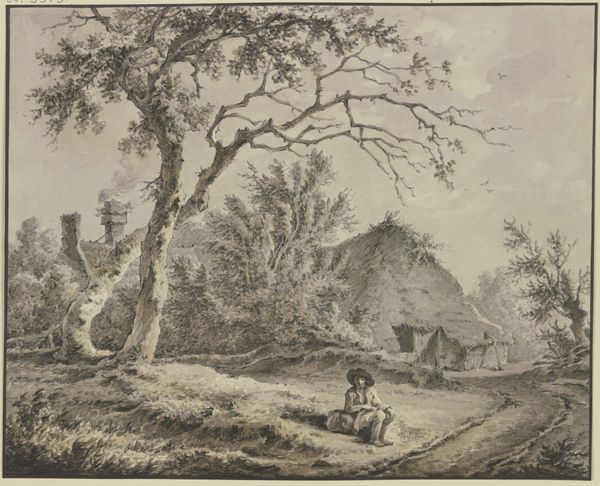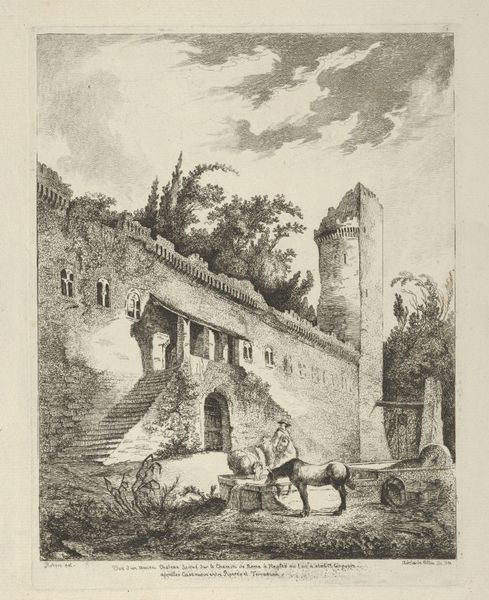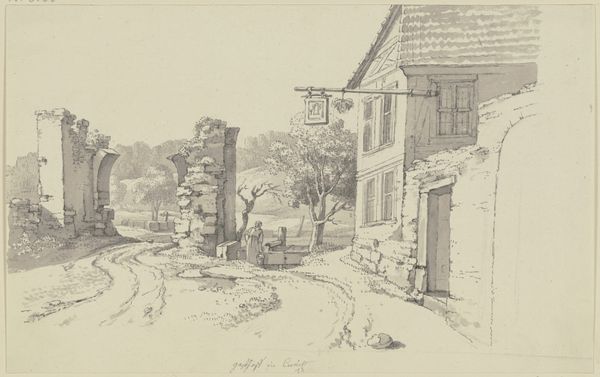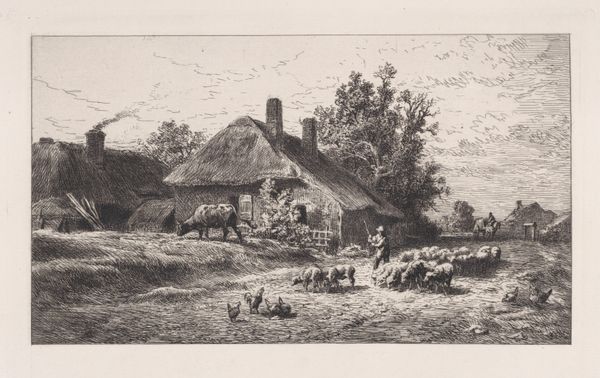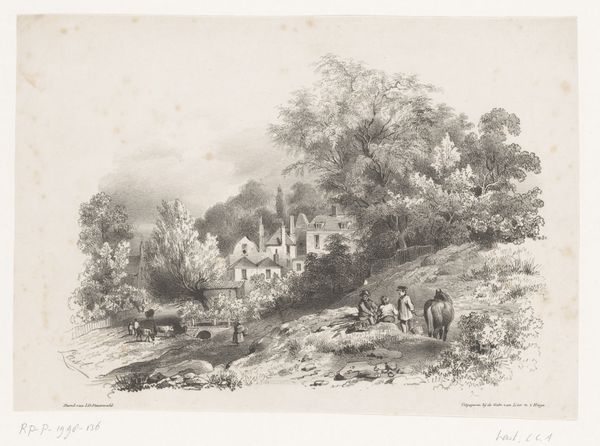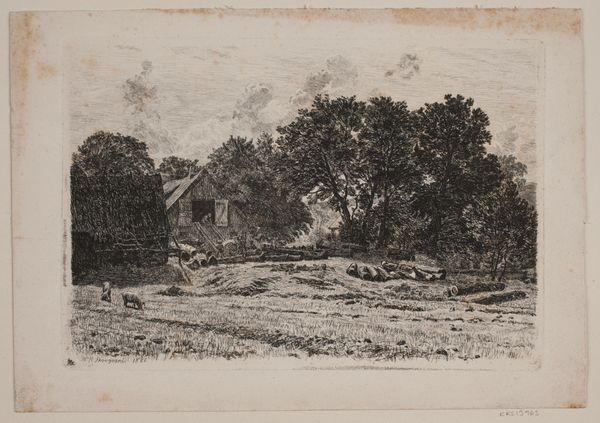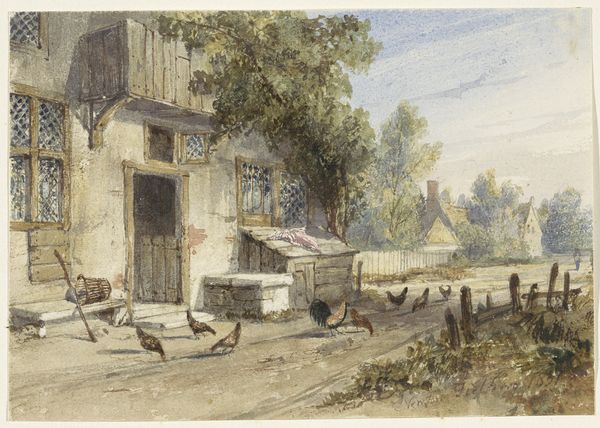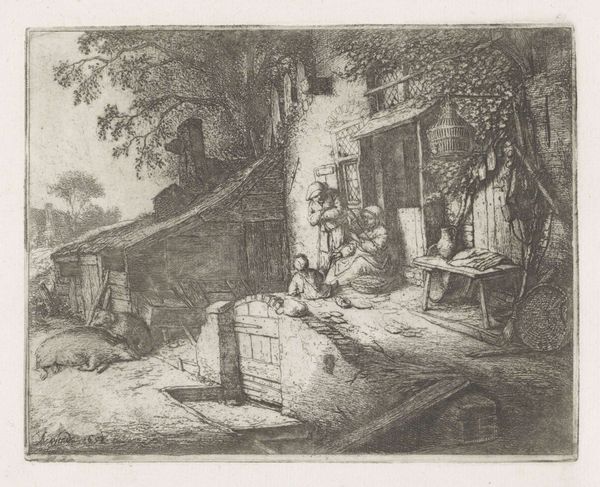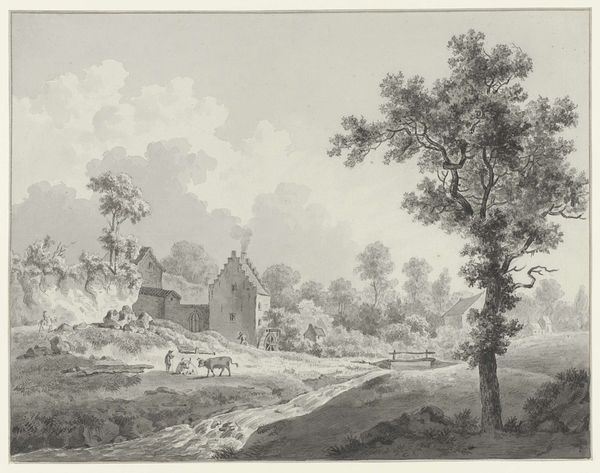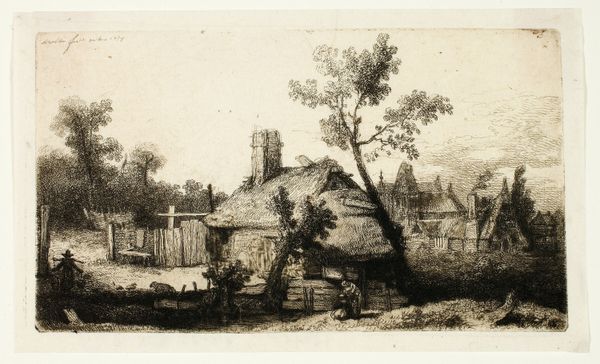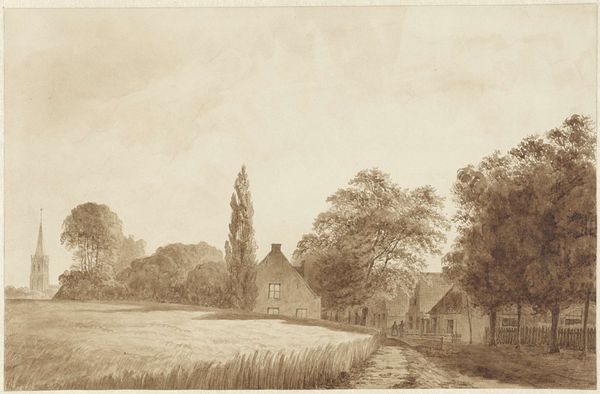
drawing, pencil
#
drawing
#
landscape
#
pencil drawing
#
pencil
#
france
#
genre-painting
#
realism
Dimensions: 10 1/2 x 14 in. (26.67 x 35.56 cm)
Copyright: Public Domain
Editor: So, here we have Jean-Baptiste Millet's "Village Scene" from around 1870, a pencil drawing. I'm immediately struck by how ordinary it seems – a simple depiction of rural life, yet there's a certain tranquility in the composition. What story do you think this scene tells? Curator: It's interesting you use the word "ordinary." Think about the rise of Realism in the mid-19th century. Artists started turning away from grand historical narratives and idealised portraits, instead focusing on the everyday experiences of ordinary people. Millet was one of those artists. He depicts a community and lifestyle, rather than, say, Napoleon at War. Editor: Ah, so the very act of depicting this kind of scene was a statement in itself? To focus on rural life. Curator: Precisely. It was a conscious decision to give visibility and validity to a segment of society largely ignored by the dominant artistic trends and the Academy at the time. But notice too, the idyllic quality. This wasn't necessarily about gritty realism. There's a gentle, almost nostalgic tone here, hinting at the changes industrialization was bringing to rural France. Do you see that? Editor: Yes, I see what you mean. The absence of any overt signs of industry almost feels like a deliberate choice to emphasize a vanishing way of life. Almost like these artists were documenting and elevating something disappearing from view? Curator: Exactly! It’s also crucial to note the increasing number of urban dwellers looking for a change, yearning to visit the countryside as a site for rest and relaxation. Millet gave the consumer what they sought. It created a popular genre of the picturesque and rustic scene. What I wonder, however, is if the subject of art became just as important as its objective, or perhaps these merged to establish our expectations and institutions today? Editor: That is an important question to consider; thinking about this in today’s context offers an entirely new interpretation. Thanks, that was a great perspective.
Comments
No comments
Be the first to comment and join the conversation on the ultimate creative platform.
